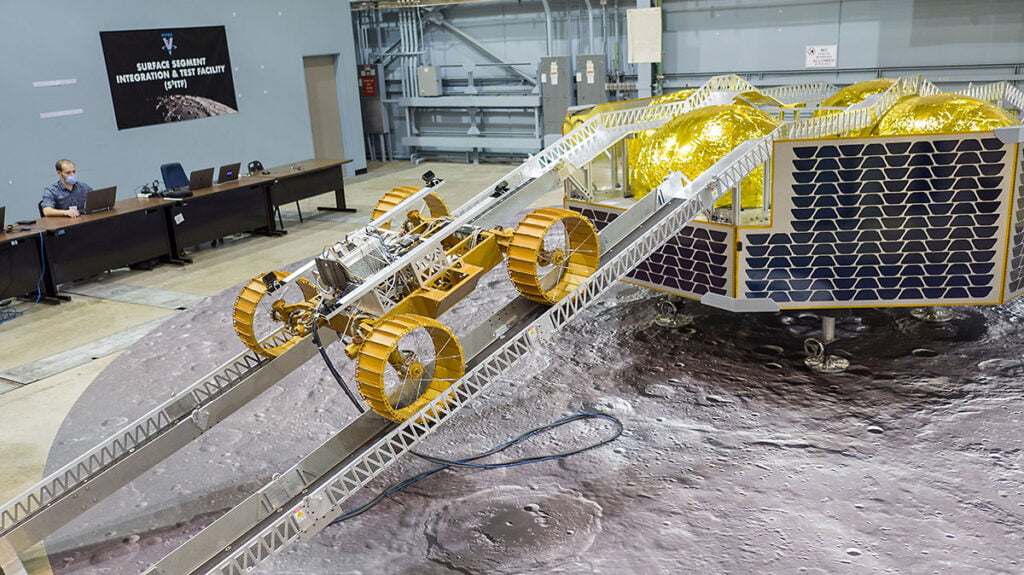ButSpeak.com
News which Matters.

NASA cancels the VIPER mission, meant to explore lunar ice, due to budget concerns and delays. The rover will be disassembled despite $800 million in costs.
NASA has announced the cancellation of the VIPER mission, originally set to explore the moon’s south pole for ice, due to delays and budget concerns. The decision to call off the Volatiles Investigating Polar Exploration Rover (VIPER) mission will result in NASA spending approximately $800 million without sending the robotic rover to the moon.
VIPER, a wheeled vehicle about the size of a small car, was already built and scheduled for launch late next year. However, NASA has decided to dismantle the rover and replace it with a nonfunctional “mass simulator.” The mission aimed to gather crucial data about the water ice present in the eternally shadowed craters of the moon’s polar regions, providing essential insights before future astronaut landings.

The cancellation stems from delays with both the VIPER rover and the privately built spacecraft that was to land it on the moon’s surface, causing significant uncertainty about the mission’s timeline. Rising costs also risked impacting other NASA missions. “Decisions like we’ve been discussing today are extremely difficult to make,” said Nicola Fox, associate administrator for NASA’s science mission directorate, during a news conference. “We don’t make them lightly. We put a lot of thought into the best way to move forward.”
The VIPER cancellation is the latest in a series of setbacks for NASA’s science missions. The costs for a mission aimed at collecting and bringing Martian rocks and soil back to Earth have escalated, prompting NASA to seek more affordable alternatives. Additionally, the Europa Clipper mission, designed to study Jupiter’s moon Europa and its under-ice ocean, faces potential delays due to electronic component issues.
NASA missions frequently exceed their original budgets and schedules, yet the agency often continues with them, sometimes delaying other projects. However, with the expectation of limited budget increases from Congress in the foreseeable future, NASA officials have decided to cut their losses with VIPER rather than jeopardize other missions.
The decision underscores the broader challenges NASA faces in balancing ambitious scientific goals with financial and logistical realities. As the agency grapples with funding constraints, prioritizing missions and making tough calls on which projects to advance or cut becomes increasingly crucial.
The VIPER mission’s cancellation not only highlights the financial hurdles but also the technical and scheduling complexities of space exploration. While the moon remains a focal point for future exploration, particularly with plans for crewed missions, the setbacks from the VIPER mission remind us of the unpredictable nature of space endeavors.